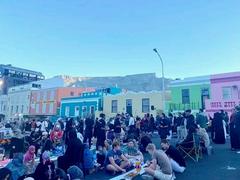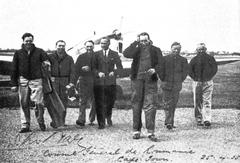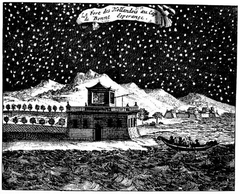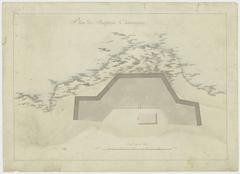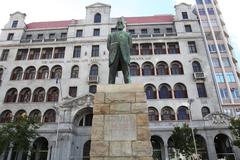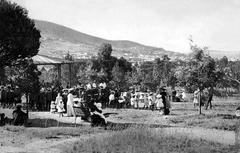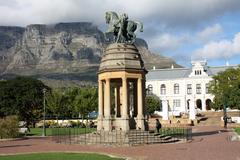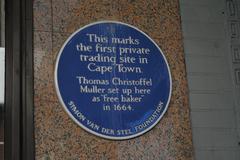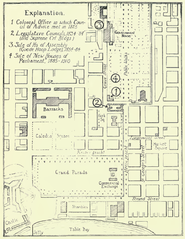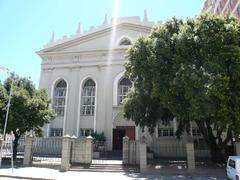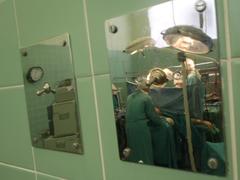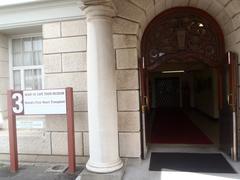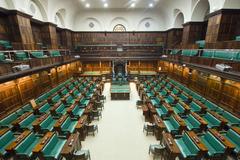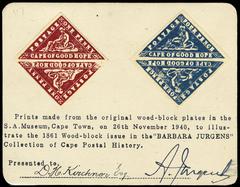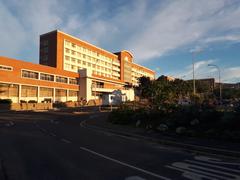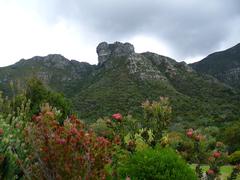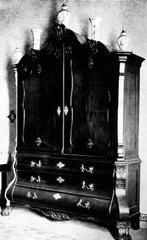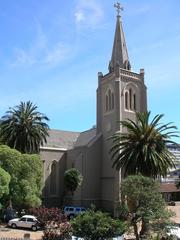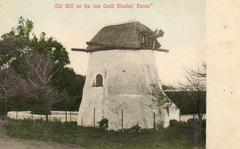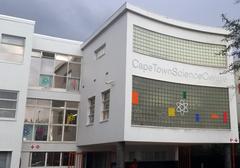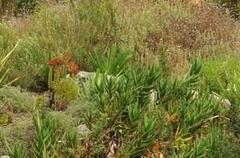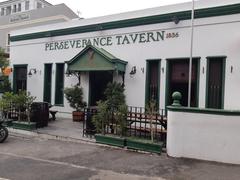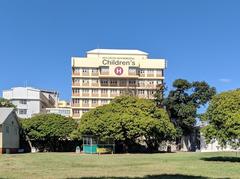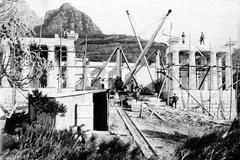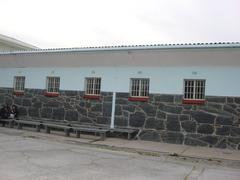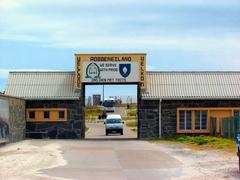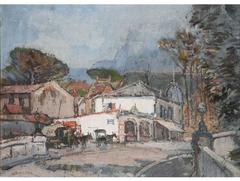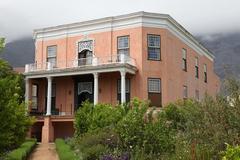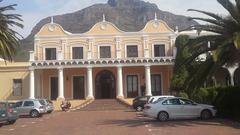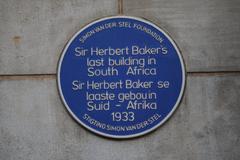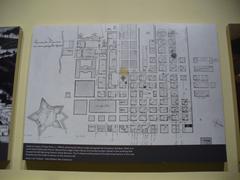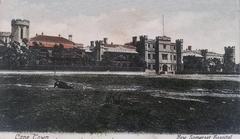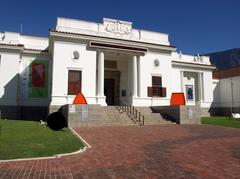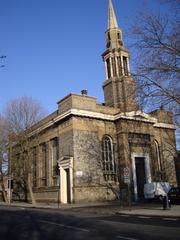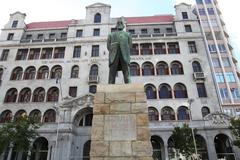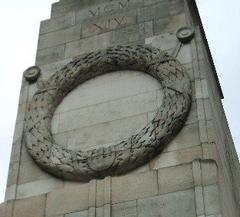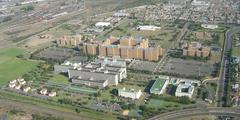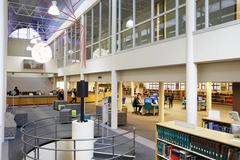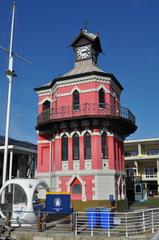Desmond and Leah Tutu House: Comprehensive Visitor Guide, Historical Significance, and Cape Town Heritage Sites
Date: 14/06/2025
Introduction
The Desmond and Leah Tutu House, situated in Cape Town’s historic Old Granary building, is a premier destination for those interested in South Africa’s transformation from apartheid to democracy. As both an architectural landmark and a center for social justice, this heritage site embodies the enduring legacies of Archbishop Emeritus Desmond Tutu and Leah Tutu—icons of reconciliation, human rights, and moral courage. This guide presents essential visitor information, including hours, ticketing, accessibility, nearby attractions, and highlights of the “Truth to Power” exhibition, ensuring a rich and meaningful experience for all who seek to engage with South Africa’s complex yet inspiring past (GAPP, The Old Granary Restoration; The Independent; Vision of Humanity; SouthAfrica.co.za).
Table of Contents
- Introduction
- Historical and Architectural Overview
- The Tutu Legacy and Social Impact
- “Truth to Power” Exhibition
- Visitor Information: Hours, Tickets, and Accessibility
- Travel Tips and Nearby Attractions
- Facilities and Amenities
- Guided Tours and Educational Programs
- Frequently Asked Questions (FAQ)
- Planning Your Visit and Further Resources
- Conclusion and Call to Action
- References
Historical and Architectural Overview
Origins and Evolution
The Old Granary, now home to the Desmond and Leah Tutu House, is a rare example of early 19th-century Cape Town architecture, constructed between 1808 and 1813. Over its two-century existence, the building has served diverse civic purposes—including a granary, bakery, women’s jail, customs house, magistrate’s court, and public works office—each phase leaving its mark on the structure’s layered architectural fabric (GAPP, The Old Granary Restoration; ArchDaily).
Restoration and Adaptive Reuse
A significant restoration, completed in 2017 by GAPP Architects, preserved the building’s historical character while modernizing it for accessibility and public use. The project emphasized retaining visible traces of the building’s turbulent history—such as original cracks and worn stonework—while introducing contemporary interventions, including internal courtyards and perimeter walkways. Today, the Granary serves as a peace center, museum, and the headquarters of the Desmond and Leah Tutu Legacy Foundation (GAPP, The Old Granary Restoration).
The Tutu Legacy and Social Impact
Honoring Desmond and Leah Tutu
The renaming of the Old Granary to the Desmond and Leah Tutu House in 2024 honors two global icons of social justice. Archbishop Desmond Tutu, Nobel Peace Prize laureate, and Leah Tutu, tireless advocate for education and welfare, are celebrated here for their activism and leadership in the anti-apartheid movement (Vision of Humanity; SouthAfrica.co.za).
A Hub for Social Justice
More than a museum, the House is a living center for dialogue, education, and advocacy. It hosts ongoing exhibitions, public programs, annual peace lectures, and special events that advance the Tutus’ commitment to reconciliation, inclusivity, and ethical leadership (Truth to Power Exhibition).
”Truth to Power” Exhibition
Exhibition Overview
Curated in partnership with the Apartheid Museum, the permanent “Truth to Power” exhibition is a cornerstone of the visitor experience. It traces the Tutus’ journey through apartheid, their pivotal role in the Truth and Reconciliation Commission, and their broader contributions to global movements for human rights.
Exhibition Themes
The exhibition is organized into six engaging sections:
- Early Years and Education: Desmond Tutu’s upbringing, teaching career, and early activism.
- The Church and the Struggle: The role of faith communities in resisting apartheid.
- Truth and Reconciliation: Tutu’s leadership in the Truth and Reconciliation Commission and its enduring influence.
- Side by Side: The partnership of Desmond and Leah Tutu in activism.
- Legacy and Global Impact: Advocacy for LGBTQ+ rights, climate justice, and international reconciliation.
- The Old Granary’s Story: The building’s transformation from colonial outpost to peace center.
Interactive displays, archival footage, and personal artifacts provide a deeply immersive experience for all ages (Truth to Power Exhibition).
Visitor Information: Hours, Tickets, and Accessibility
Opening Hours
- Tuesday to Saturday: 09:30 – 15:30
- Closed: Sundays, Mondays, and public holidays (MapMyWay)
Tickets and Admission
- South African & African nationals with ID: R50
- Pensioners and students with ID: R25
- International visitors: R100
- Children under 18: Free
- Special commemorative days: Free entry
Tickets can be purchased online via the official website or at the venue (cash-free, electronic payments only).
Accessibility
The venue is wheelchair accessible, with ramps and lifts in main exhibition areas. Some original features may present minor challenges, so visitors with mobility concerns are encouraged to contact the site in advance for assistance (ArchDaily). Staff are available to help visitors with special needs.
Travel Tips and Nearby Attractions
Location and Getting There
- Address: 11 Buitenkant Street, Zonnebloem/District Six, Cape Town 8001
- Main Entrance: Longmarket Street
The House is easily accessible by public transport (MyCiTi buses, minibus taxis, and proximity to Cape Town’s central train station). Limited street parking is available, but using public transport or ride-hailing services is recommended due to city center traffic.
Nearby Heritage Sites
Combine your visit with other Cape Town historical landmarks:
- District Six Museum: Chronicling forced removals under apartheid.
- Castle of Good Hope: South Africa’s oldest colonial building.
- Cape Town City Hall: Site of Nelson Mandela’s first public speech after his release.
- Grand Parade: Historic city square.
All are within walking distance, making for a rich heritage itinerary.
Facilities and Amenities
- Restrooms: Modern and accessible.
- Cloakroom: For coats and bags; large luggage discouraged.
- Gift Shop: Books and memorabilia celebrating the Tutus’ legacy.
- Refreshments: Light snacks and beverages available.
- Wi-Fi: Complimentary in public areas.
Guided Tours and Educational Programs
- Guided Tours: Recommended for deeper insights; available for individuals and groups (advance booking for groups of 10+).
- Educational Programs: Workshops, children’s activities, and outreach programs promote ethical leadership and active citizenship.
- Temporary Exhibitions: Rotating displays on contemporary social justice themes.
Frequently Asked Questions (FAQ)
Q: What are the visiting hours?
A: Tuesday to Saturday, 09:30–15:30. Closed Sundays, Mondays, and public holidays.
Q: How do I buy tickets?
A: Tickets are available online or on-site (electronic payment only).
Q: Is the venue wheelchair accessible?
A: Yes, main exhibition areas are accessible. Contact the venue for specific needs.
Q: Are guided tours available?
A: Yes, and they are recommended. Group tours must book in advance.
Q: Can I take photos inside?
A: Photography for personal use is allowed in most areas; flash, tripods, and photography in restricted zones are not permitted.
Q: Where is the main entrance?
A: On Longmarket Street.
Planning Your Visit and Further Resources
- Contact: +27 (0)21 552 7524 | [email protected]
- Official Website: Desmond and Leah Tutu Legacy Foundation
- Visitor Info & Tickets: MapMyWay
- Truth to Power Exhibition: Truth to Power
Tips:
- Book tickets early, especially in peak season.
- Bring valid ID for discounts.
- Arrive early to explore both the house and neighboring sites.
- Wear comfortable shoes for walking tours.
Enhance your experience:
Download the Audiala app for an interactive audio guide and follow the Foundation’s social media channels for the latest updates.
Conclusion and Call to Action
A visit to the Desmond and Leah Tutu House is a journey through South Africa’s history and a tribute to the enduring power of hope, forgiveness, and justice. This unique heritage site not only celebrates the Tutus’ legacy but also invites every visitor to reflect on universal themes of human dignity and reconciliation.
Plan your visit, explore the “Truth to Power” exhibition, and immerse yourself in the heart of Cape Town’s living history. Engage with ongoing educational programs, attend special events, and use digital resources to deepen your understanding. By visiting, you become part of a global movement toward peace and social justice.
References and Further Reading
- GAPP, The Old Granary Restoration
- The Independent, Desmond Tutu and South Africa’s Anti-Apartheid Struggle
- Vision of Humanity, Desmond Tutu and the Triumph Against Apartheid
- SouthAfrica.co.za, Desmond Tutu’s Contribution to Dismantling Apartheid
- MapMyWay, Old Granary Building to be Renamed Desmond and Leah Tutu House
- Truth to Power Exhibition, Official Website
- ArchDaily, The Old Granary Museum by GAPP Architects and Urban Designers

